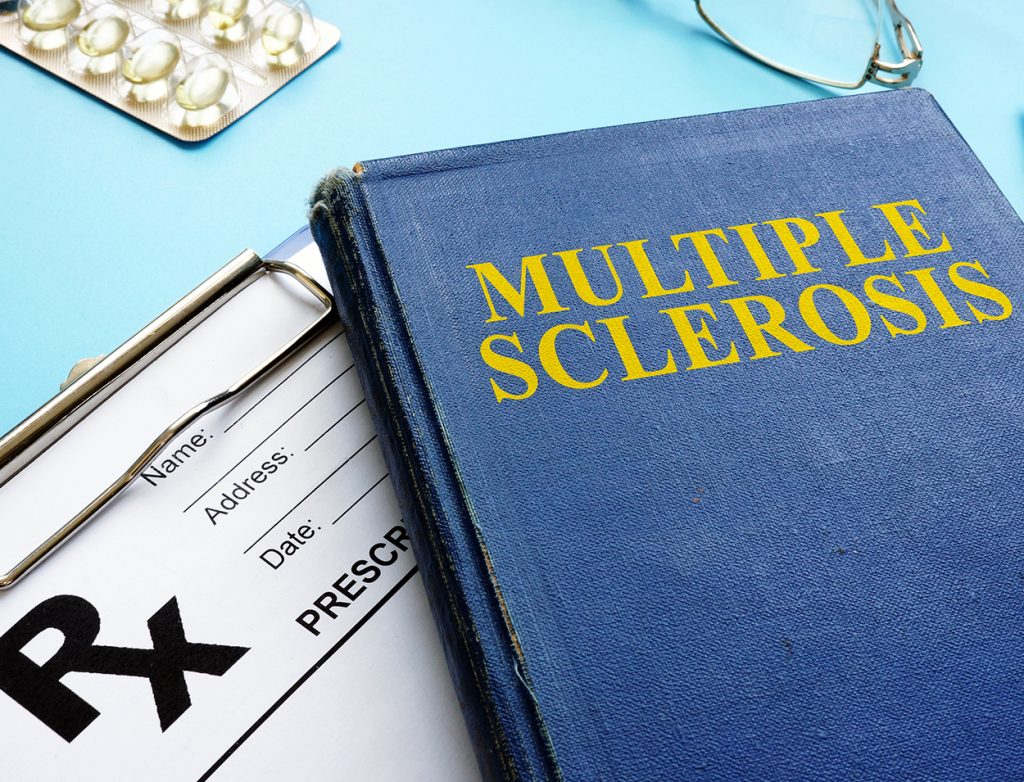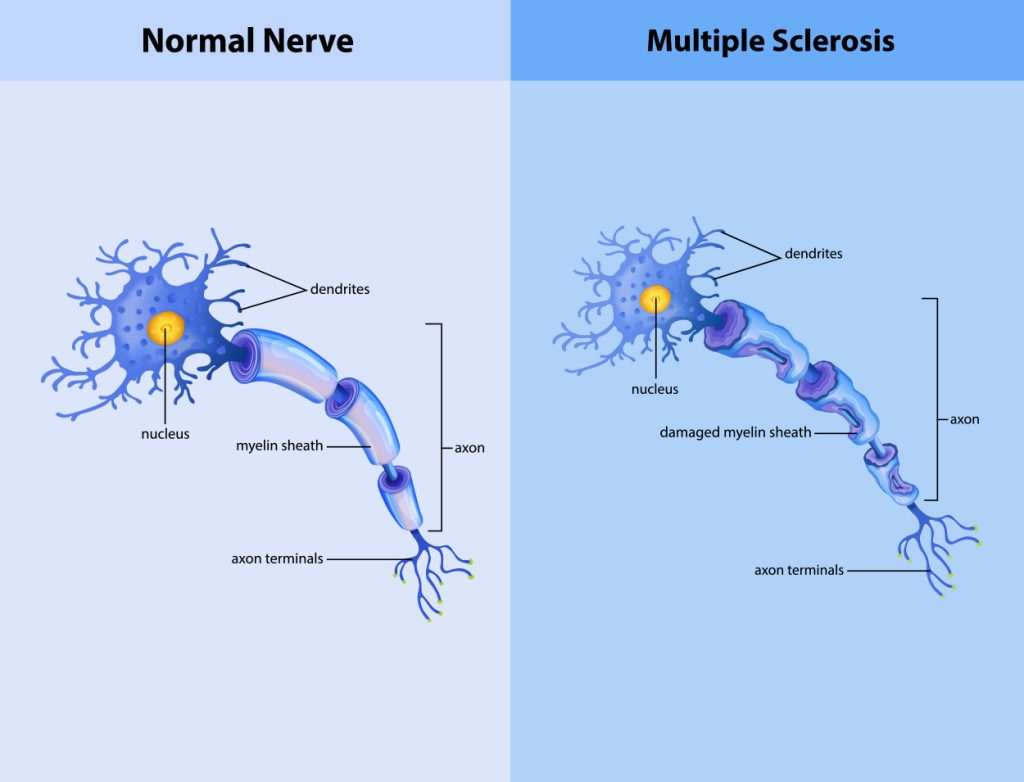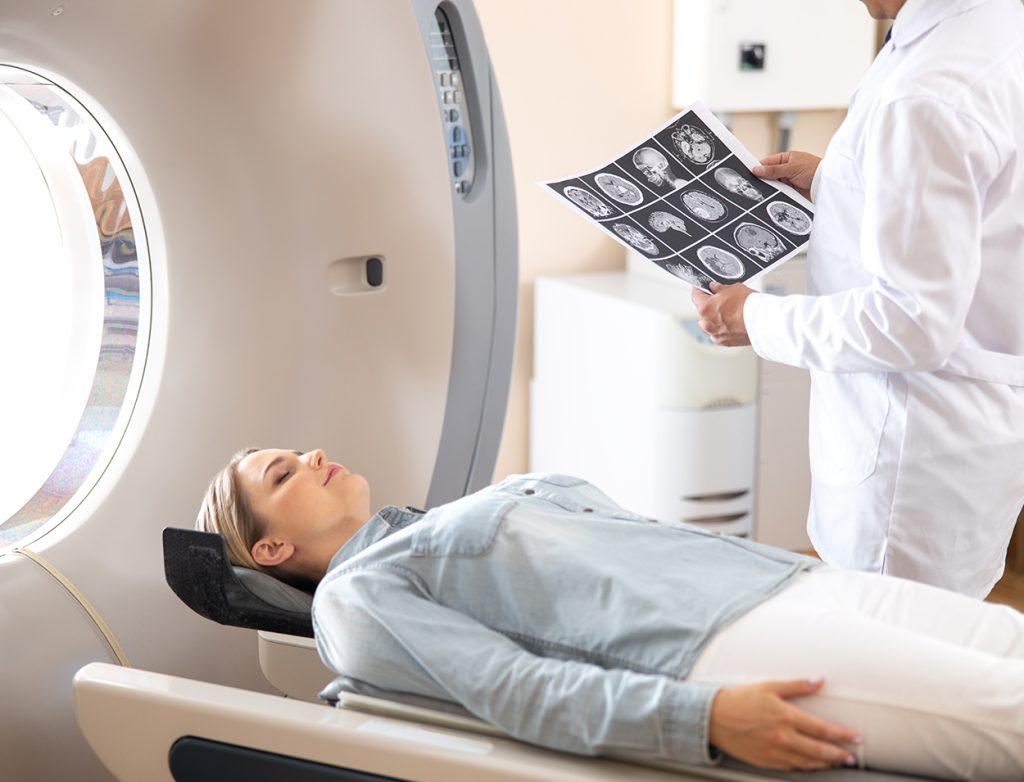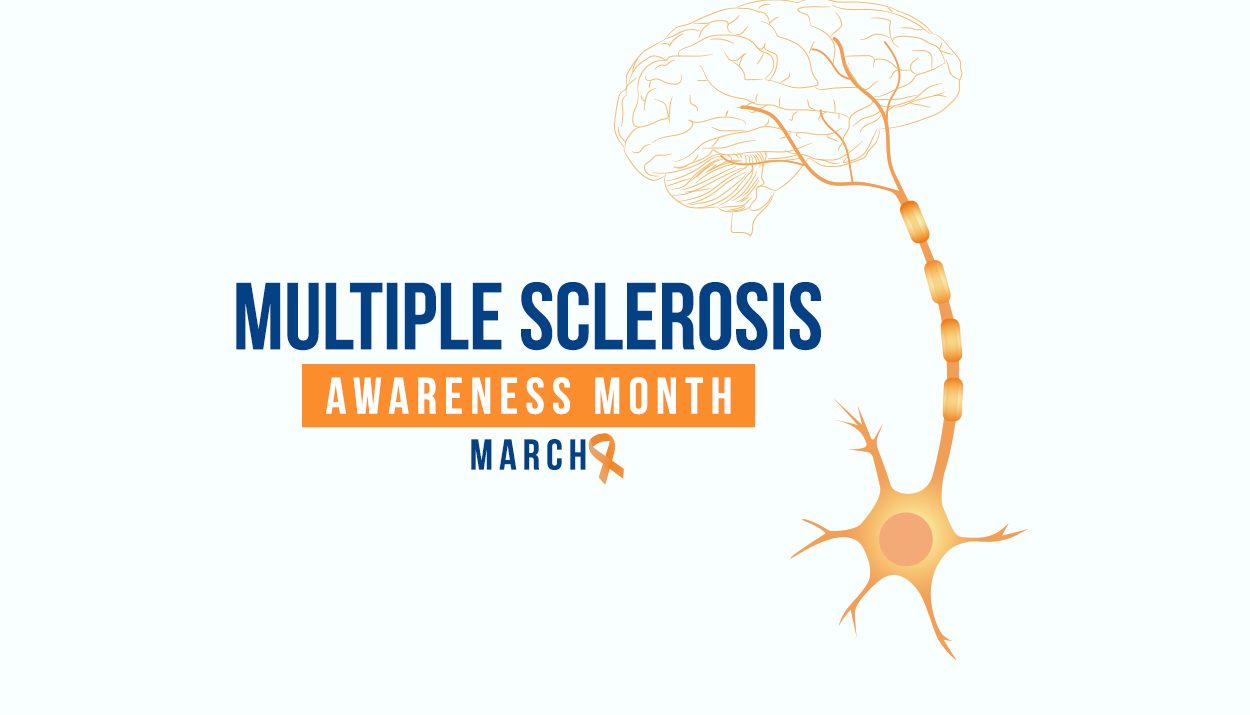Affecting approximately 2.8 million people worldwide, with about 1 million in the United States, Multiple Sclerosis (MS) can hamper one’s well-being in various ways. From cognitive impairments to emotional distress, its impact varies from person to person. The complexities surrounding this autoimmune disease have intrigued scientists for long, leading to extensive research driven by a shared commitment to gain deeper insights into the condition.

As we observe Multiple Sclerosis Awareness Month, MDForLives reaffirms its dedication to empowering physicians in the battle against this condition. To uphold this commitment, we’ve curated this blog to help you explore the most recent advancements in multiple sclerosis treatment and the promising developments shaping the future of Multiple Sclerosis research.
CURRENT TREATMENT OPTIONS AND THEIR LIMITATIONS

Considered to be the immune system’s misdirected attack on the central nervous system, Multiple Sclerosis triggers inflammation, demyelination and subsequent neurological challenges. Yet, its symptoms are as diverse as they are unpredictable, revealing the intricate and varied nature of the disease.
Effectively managing MS demands a nuanced and individualized approach tailored to each patient’s unique needs and disease trajectory.
Disease-modifying therapies (DMTs), have emerged as the latest treatment for multiple sclerosis designed to mitigate relapse rates, delay disease progression and alleviate symptoms. It encompasses a spectrum of mechanisms, including immunomodulation, immunosuppression and neuroprotection, equipping physicians with all the necessary tools to battle this multifaceted disease.
Despite such novel therapeutic interventions, diagnosis and treatment of multiple sclerosis remains a complex affair, shaped by a multitude of factors such as disease subtype, severity, patient preferences and comorbidities. While DMTs excel in managing disease activity for many individuals, they may fall short in addressing the side effects encompassing fatigue, cognitive impairment and mobility challenges, emphasizing the need for a holistic, interdisciplinary approach to care.
RECENT RESEARCH REVELATIONS
Driven by cutting-edge technologies and collaborative initiatives, recent Multiple Sclerosis research endeavors are poised to deepen our understanding of this neurological disorder.

Advancements in imaging technologies, such as Magnetic Resonance Imaging (MRI) and Optical Coherence Tomography (OCT) are offering invaluable insights into disease progression and treatment response. Simultaneously, the rise of big data analytics and machine learning algorithms are empowering researchers to leverage vast amounts of data to identify the underlying mechanisms of MS and devise more effective treatment strategies.
Likewise, collaborative efforts through research consortia and patient registries are accelerating drug discovery processes. Cross-border collaboratives like the International Multiple Sclerosis Genetics Consortium (IMSGC) and the Multiple Sclerosis Outcome Assessments Consortium (MSOAC) exemplify the collective effort to translate scientific findings into tangible benefits for patients, paving the way to more advanced research in Multiple Sclerosis.
Furthermore, Genome-wide Association Studies (GWAS) have illuminated over 200 genetic variants linked to MS susceptibility, making room for personalized medicine approaches. The actionable insights gained from these studies are also empowering clinicians to tailor treatment modalities based on individual genetic profiles and disease characteristics.
THE PROMISING FUTURE OF MULTIPLE SCLEROSIS RESEARCH

Fueled by collaboration, innovation and the determination to better understand autoimmune diseases, the future of Multiple Sclerosis research promises transformative breakthroughs, personalized treatments and better patient outcomes globally. With the combined expertise and creativity of the global research community, physicians can delve deeper into MS biology, devise targeted therapies, and move closer to curing this debilitating condition.
Calling all physicians eager to contribute their insights and drive growth in the healthcare sector! Don’t wait any longer – join us!
By registering with MDForLives, you not only gain the opportunity to participate in medical surveys and earn rewards but also access webinars and discussion forums where physicians exchange valuable knowledge. You can also share your case studies and insightful blogs on unique topics to engage with our wide range of panelists and contribute to collective learning.
References:
- Multiple Sclerosis
www.ninds.nih.gov - MS Prevelence
www.nationalmssociety.org - Genome‐wide Association Studies of Multiple Sclerosis
www.ncbi.nlm.nih.gov - Advances in Brain Imaging in Multiple Sclerosis
www.ncbi.nlm.nih.gov

The creative force behind the keyboard, Pallabi crafts narratives of healthcare wonders and research marvels. As a seasoned professional blogger, she ventures to unearth the riches of medical innovation, weaving them into insightful stories that educate.






